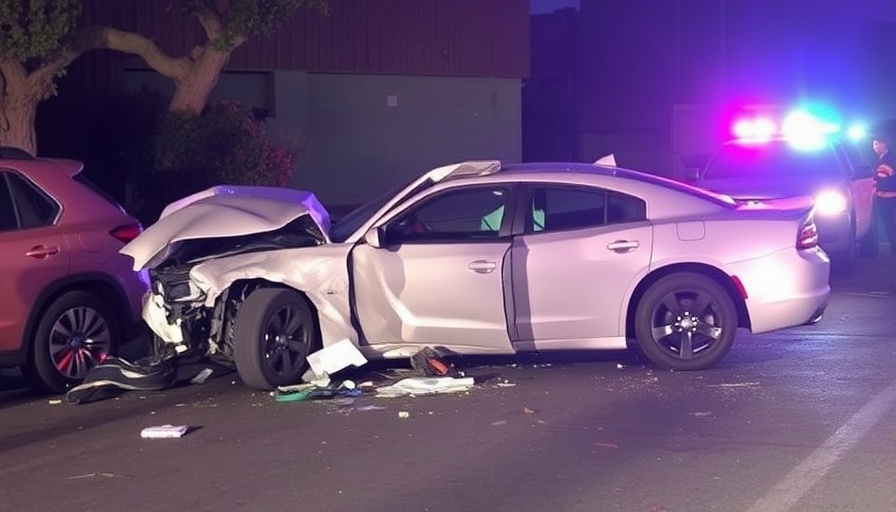
Understanding the Controversy: License Plate Readers and Personal Privacy
Imagine driving down the highway, blissfully unaware that every move you're making is being monitored. In California, this scenario isn’t fiction; it’s reality. Recent revelations have emerged showing that some police departments are sharing license plate data with federal agencies like Immigration and Customs Enforcement (ICE) and the U.S. Border Patrol. This has sparked a heated debate about privacy rights and the extent of governmental surveillance.
What's at Stake? Balancing Safety and Privacy
The use of license plate readers (LPRs) has become commonplace for law enforcement. These cameras capture images of license plates, storing them in databases for various police operations. Proponents argue that LPRs enhance public safety, enabling police to track down stolen vehicles and apprehend wanted criminals more efficiently. However, as California police departments like Bakersfield's come under scrutiny for sharing this data with federal agencies known for immigration enforcement, a pivotal question arises: Is the trade-off for enhanced security worth the potential invasion of privacy and civil liberties?
The Fear of Surveillance: Voices from the Community
For many in Bakersfield, the implications of such surveillance are alarming. Community members express concerns about the chilling effect this kind of monitoring can have, especially among immigrants and underrepresented groups that already feel marginalized. Individuals may hesitate to engage with local law enforcement due to fears that their personal information will be shared with authorities they distrust. This disconnect between police and the community could ultimately compromise public safety, as trust plays a critical role in law enforcement effectiveness.
Legal Ramifications: Does the Law Protect Citizens?
The legality of sharing license plate data raises significant questions. California laws are relatively strict about protecting personal data, yet citations of specific provisions in these statutes become murky when it comes to federal law enforcement agencies. Experts argue that sharing such sensitive data may conflict with state privacy laws designed to empower and protect residents. Legal reviews could also determine if officers acted lawfully or overstepped their authority in their agreements with ICE.
Counterarguments: Community Safety vs. Privacy
While critics of the data-sharing practices highlight potential civil rights infringements, law enforcement agencies insist that cooperation with ICE is vital for maintaining safety and identifying criminals who may be in the country illegally. Officials argue that this partnership allows them to focus on high-risk individuals and gangs that often exploit vulnerable populations. However, unaddressed concerns regarding transparency and informed consent linger, as well as the need for a balance between effective policing and upholding civil liberties.
Future Predictions: Will Calls for Reform Take Hold?
As discussions surrounding data-sharing practices intensify, community activists and legal advocates are calling for legislative reform. They are urging lawmakers to impose stricter regulations on how police departments use license plate readers and share data with federal agencies. The outcome of these efforts could reshape the future of public safety in California, potentially leading to increased transparency and accountability while safeguarding residents' rights.
Engaging with Community Concerns: Next Steps
To effectively address these challenges, it’s essential for residents in Bakersfield and beyond to engage with local authorities. Community forums, discussions, and outreach efforts can build awareness and offer platforms for individuals to voice their opinions and concerns. Policymakers and law enforcement must consider these perspectives as they navigate the complexities of modern policing.
It's clear that understanding the implications of license plate data-sharing is critical for informed community involvement. Awareness can spark changes that prioritize civil liberties and peace of mind for all residents. Follow ongoing discussions through local news sources, and don't hesitate to reach out to local representatives to express your views on this pressing issue.
 Add Row
Add Row  Add
Add 



Write A Comment